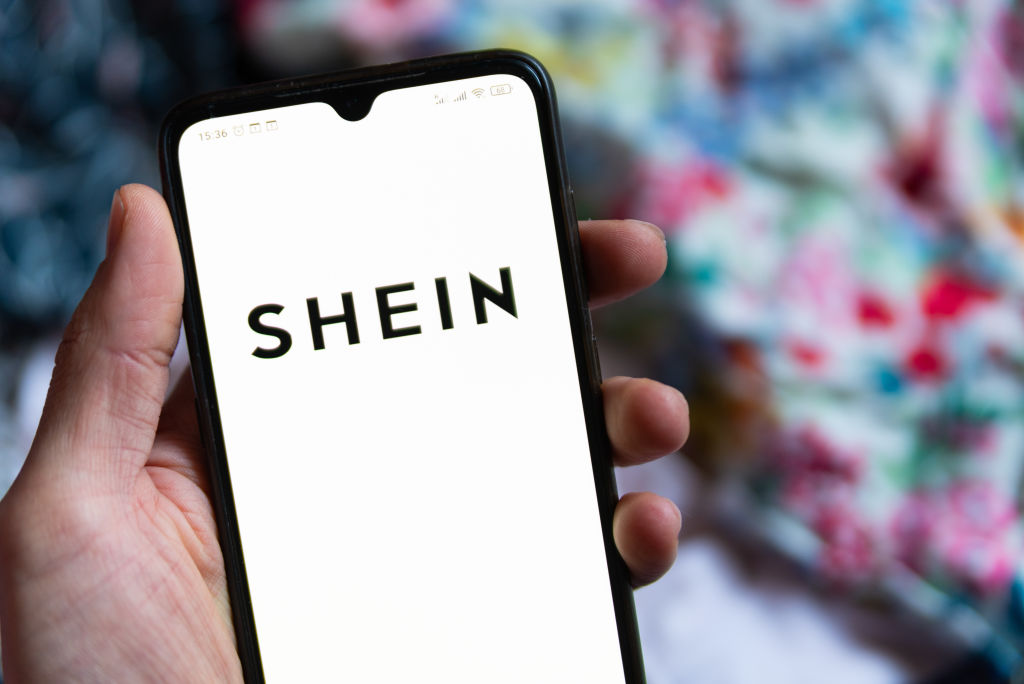Amnesty International slams Shein IPO as a "badge of shame" for the London Stock Exchange
Shein’s rumoured IPO on the London Stock Exchange has prompted criticism from human rights organisations. Will you invest?


Get the latest financial news, insights and expert analysis from our award-winning MoneyWeek team, to help you understand what really matters when it comes to your finances.
You are now subscribed
Your newsletter sign-up was successful
Want to add more newsletters?

Twice daily
MoneyWeek
Get the latest financial news, insights and expert analysis from our award-winning MoneyWeek team, to help you understand what really matters when it comes to your finances.

Four times a week
Look After My Bills
Sign up to our free money-saving newsletter, filled with the latest news and expert advice to help you find the best tips and deals for managing your bills. Start saving today!
Fast fashion is often a grubby business, plagued by inadequate worker and environmental protections. It’s one to avoid in both your wardrobe and your stocks and shares portfolio, if you’re interested in being an ethical consumer and investor.
In recent weeks, fast-fashion retailer Shein has reportedly filed papers with the UK regulator ahead of a planned flotation on the London Stock Exchange. But, this has prompted concern from human rights charities such as Amnesty International and Stop Uyghur Genocide.
The retailer currently has tops and dresses selling for less than £2. When a Channel 4 documentary dug deeper in 2022, it found workers in the supply chain were being paid as little as 3p per item, with no weekends and just one day off per month.
MoneyWeek
Subscribe to MoneyWeek today and get your first six magazine issues absolutely FREE

Sign up to Money Morning
Don't miss the latest investment and personal finances news, market analysis, plus money-saving tips with our free twice-daily newsletter
Don't miss the latest investment and personal finances news, market analysis, plus money-saving tips with our free twice-daily newsletter
The cotton used in Shein’s garments has also been linked to a Chinese region accused of using forced labour, according to reports seen in Bloomberg.
“It’s deeply troubling that a company with questionable labour and human rights standards [...] could be set to reap hundreds of millions of pounds via a sale of shares and a listing on the London Stock Exchange,” says Dominique Muller, researcher at Amnesty International.
She suggests that a Shein IPO could set a dangerous precedent, adding: “It is essential the new UK government does not allow a race to the bottom in terms of corporate and human rights standards.”
Why is Shein seeking a listing in London?
Shein tried to obtain a listing on the New York Stock Exchange, confidentially filing in November last year, but this was stalled by tensions between the US and China and concerns about labour practices.
Shein is now domiciled in Singapore, but was founded in China and most of its suppliers are based there. The company is currently privately-owned, but an IPO could invite significant investment.
While Shein’s rumoured IPO has prompted alarm among human rights groups, feelings among government and London Stock Exchange officials are likely more mixed. London has seen an exodus of companies from its historic exchange since Brexit.
According to Bloomberg, the number of London-listed companies has shrunk by 25% over the past decade.
“Theoretically, Shein listing in London should be good for the UK market and could attract other fast-growing names in e-commerce,” explains Dan Coatsworth, investment analyst at AJ Bell.
However, “in a world where investors demand transparency, high levels of governance and companies to be good corporate citizens, you have to wonder whether Shein will pass all the tests with flying colours,” he adds.
Pressure against Shein IPO mounts
Pressure against Shein has mounted in recent days as another human rights group, Stop Uyghur Genocide, has launched a legal campaign against Shein’s rumoured IPO.
The group campaigns for the rights of the Uyghur people who live primarily in northwestern China. Shein has been accused of selling garments which contain cotton harvested through forced labour in the region – something China denies.
Ricardo Gama, a solicitor representing the group, said: “Stop Uyghur Genocide expects UK financial institutions to uphold the high ethical standards that they pay lip service to, and to make clear that London isn't the place to come for a ‘no questions asked’ approach to capital.
“At the very minimum regulators must make sure that laws in place to root out modern slavery are complied with.”
If you are looking to avoid companies involved in controversies, while prioritising ethical stocks for your portfolio, you could consider a fund with an ESG label. ESG stands for environmental, social and governance issues.
ESG funds often target companies with strong environmental or social business practices, or exclude those which don’t meet minimum criteria.
Get the latest financial news, insights and expert analysis from our award-winning MoneyWeek team, to help you understand what really matters when it comes to your finances.
Katie has a background in investment writing and is interested in everything to do with personal finance, politics, and investing. She previously worked at MoneyWeek and Invesco.
-
 Should you buy an active ETF?
Should you buy an active ETF?ETFs are often mischaracterised as passive products, but they can be a convenient way to add active management to your portfolio
-
 Power up your pension before 5 April – easy ways to save before the tax year end
Power up your pension before 5 April – easy ways to save before the tax year endWith the end of the tax year looming, pension savers currently have a window to review and maximise what’s going into their retirement funds – we look at how
